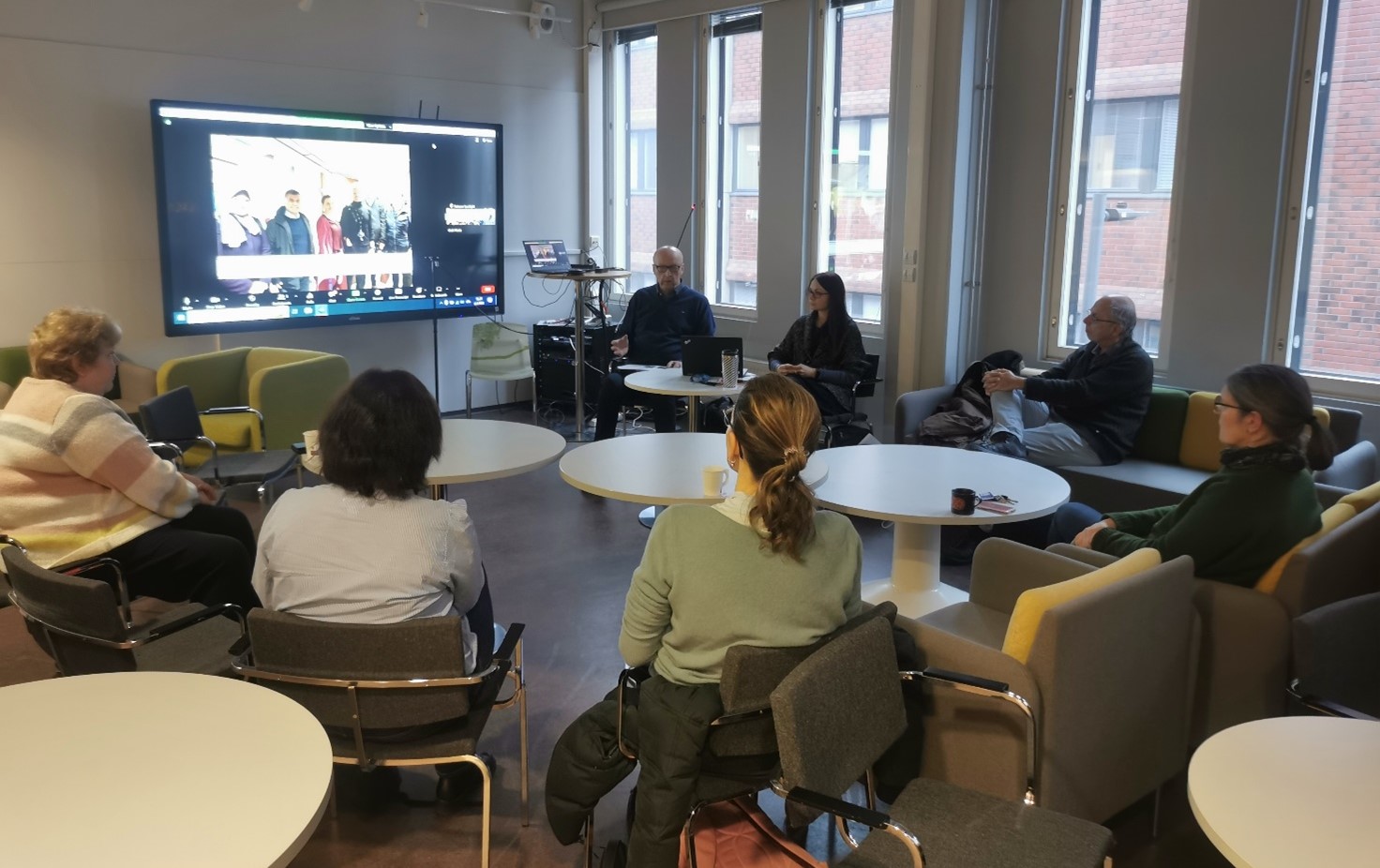The forum was a part of a series of conversational hybrid format events for researchers in the field of higher education research. Two HET researchers – Vesa Korhonen and Vesna Holubek – gave short presentations on internationalisation which were followed by general discussion and sharing participants’ experiences. Internationalisation is often simplified to physical mobility and speaking English, which ignores plenty of the opportunities that internationalisation can create. It leaves out international and transnational engagement, connections, and knowledge, for example.
To grasp the wide concept of internationalisation, the forum started with participants mapping out different definitions. Among other perspectives, internationalisation was defined as the existence of mechanisms that facilitate and promote mobility between organizations around the world. Through these mechanisms it is possible to make connections with colleagues and peers from other countries by going abroad to visit universities, but just as well by welcoming visitors from foreign universities. Connections can also be made by attending and encouraging international colleagues to attend international conferences or seminars. Another important aspect of internationalisation is inclusion of international staff and building connections despite possible language or cultural boundaries. Internationalisation can also be recognized as curriculum content that addresses international issues and expands students’ understanding of global phenomena.
Internationalisation aspects in the Faculty of Education and Culture include international staff and students, international research perspectives and curriculum content that addresses global perspectives. Vesa gave an example on how he has included an international staff member in teaching and another example on how he has participated in FinPal, a cooperation to develop pedagogical competencies and teaching capacity in Palestinian higher education. Vesna herself became a staff member after attending the international Master’s program, and has focused her research on internationalisation.
In a globalised world internationalisation has become a necessary part of working and studying. In the forum discussions it was recognised that internationalisation is enriching and creates opportunities to share experiences and learn from others. Through cooperation it is possible to search for and find best practices together. Internationalisation also enables collaboration in organising academic courses or programs together with personnel from foreign universities. A good example of that is the teaching and learning collaboration of European Consortium of Innovative Universities (ECIU) that includes 13 European Universities, including Tampere University. In the context of research, it is also possible to apply for international funding and participate in transnational projects or research initiatives.
Despite the benefits, internationalisation is not only fun and games. In the forum it was discussed that internationalisation might require extra effort. It was also recognized that not everyone has the same possibilities to be international, and it can include a lot of competitiveness. Being an international staff member or student has its own hardship through discrimination, barriers in language and participation and difficulty in career development. In research, building a common understanding of a project’s ways and cooperation takes time and effort. However, internationalisation was perceived overall as enriching and desirable.
Thank you for active participation and great discussion! The next HET Forum will be organised in April 2023, more details will be announced closer to date.
Text and photo: Outi Ahola

